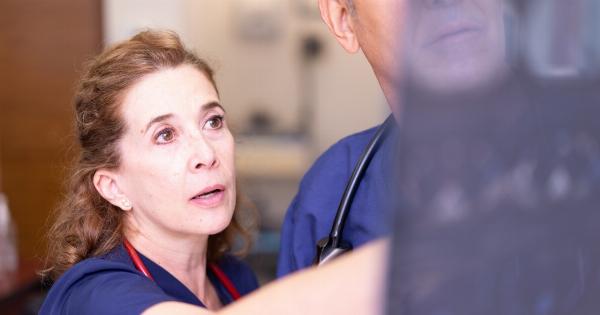Pulmonary hypertension (PH) is a complex and potentially life-threatening condition characterized by high blood pressure in the arteries of the lungs.
Unlike systemic hypertension (high blood pressure in the body’s general circulation), pulmonary hypertension specifically affects the vessels that supply blood to the lungs. This condition can lead to progressive damage to the lungs, heart, and other vital organs, ultimately resulting in heart failure and death if left untreated.
The Importance of Dedicated Specialists
Due to the complexity and severity of this condition, individuals living with pulmonary hypertension require specialized care from dedicated healthcare professionals.
Pulmonary hypertension specialists have advanced knowledge and expertise in the diagnosis, treatment, and management of this challenging disease. They play a crucial role in ensuring early detection, accurate diagnosis, and personalized treatment plans tailored to each patient’s needs.
These specialists undergo extensive training and education to stay updated with the latest advancements in pulmonary hypertension research and treatment.
They are familiar with the intricacies of this condition, including its various subtypes and associated risk factors. By working closely with a dedicated specialist, patients can have access to comprehensive care, including timely interventions and appropriate therapies.
Streamlined Procedures for Efficient Care
Efficiency is paramount when it comes to managing pulmonary hypertension. Streamlined procedures and protocols help ensure that patients receive timely care and avoid unnecessary delays in diagnosis and treatment.
This is particularly crucial considering that pulmonary hypertension is a progressive disease that may rapidly worsen if left unaddressed.
One aspect of streamlined care involves optimizing the diagnostic process. Pulmonary hypertension specialists utilize a range of tests and procedures to assess a patient’s condition accurately.
These may include echocardiograms, pulmonary function tests, chest X-rays, and right heart catheterization. By promptly and efficiently conducting these assessments, specialists can expedite the diagnostic process and initiate appropriate treatment plans early on.
Another aspect of streamlined care is ensuring prompt access to specialized therapies.
Pulmonary hypertension specialists are well-versed in the various treatment options available, including medications, supplemental oxygen therapy, and in some cases, lung transplantation.
By collaborating closely with other healthcare professionals, such as cardiologists, pulmonologists, and cardiac surgeons, these specialists can facilitate seamless referral processes and expedite access to the most suitable treatment options for individual patients.
Enhanced Communication and Collaboration
Pulmonary hypertension care requires a multidisciplinary approach involving various healthcare professionals.
Effective communication and collaboration among these specialists are vital to providing comprehensive care and achieving optimal outcomes for patients.
Streamlined procedures can include regular interdisciplinary team meetings where specialists from different disciplines, such as pulmonology, cardiology, radiology, and nursing, can discuss complex cases, exchange knowledge, and formulate coordinated treatment plans. This collaborative approach fosters a comprehensive understanding of each patient’s condition and treatment needs, allowing for improved clinical decision-making and enhanced patient care.
Patient Education and Empowerment
Patients with pulmonary hypertension often face significant challenges in managing their condition. Education and empowerment play a crucial role in enabling individuals to actively participate in their care and make informed decisions.
Dedicated specialists can provide patients with access to educational resources, support groups, and self-management strategies.
By empowering patients with knowledge about their condition, treatment options, and lifestyle modifications, specialists can help them navigate the complexities of pulmonary hypertension more effectively.
This includes educating patients about the importance of medication adherence, regular follow-ups, symptom recognition, and lifestyle changes such as avoiding tobacco smoke, maintaining a healthy weight, and engaging in appropriate exercise.
Research and Innovation
Advancements in pulmonary hypertension research and innovative treatment approaches continue to improve outcomes and expand treatment options for patients.
Dedicated specialists play a crucial role in driving and participating in clinical research studies, contributing to the development of cutting-edge therapies and management strategies.
Through their active involvement in research and clinical trials, pulmonary hypertension specialists bring the latest advancements to their patients.
This allows patients to access novel therapies and potentially benefit from early interventions that can slow disease progression and improve quality of life.
Conclusion
Pulmonary hypertension is a complex disease that requires dedicated specialists and streamlined procedures to ensure optimal patient care.
Specialists with advanced knowledge and expertise in this condition play a critical role in early detection, accurate diagnosis, and personalized treatment planning.
Streamlined procedures, including efficient diagnostic processes and prompt access to specialized therapies, are essential for managing this progressive disease effectively.
Enhanced communication and collaboration among healthcare professionals, coupled with patient education and empowerment, further contribute to comprehensive care and improved outcomes.
By staying at the forefront of research and innovation, specialized healthcare professionals continue to expand treatment options and bring the latest advancements to patients.
With the dedication of specialized care providers and the implementation of streamlined procedures, the management of pulmonary hypertension can be optimized, positively impacting patient outcomes and overall quality of life.





























